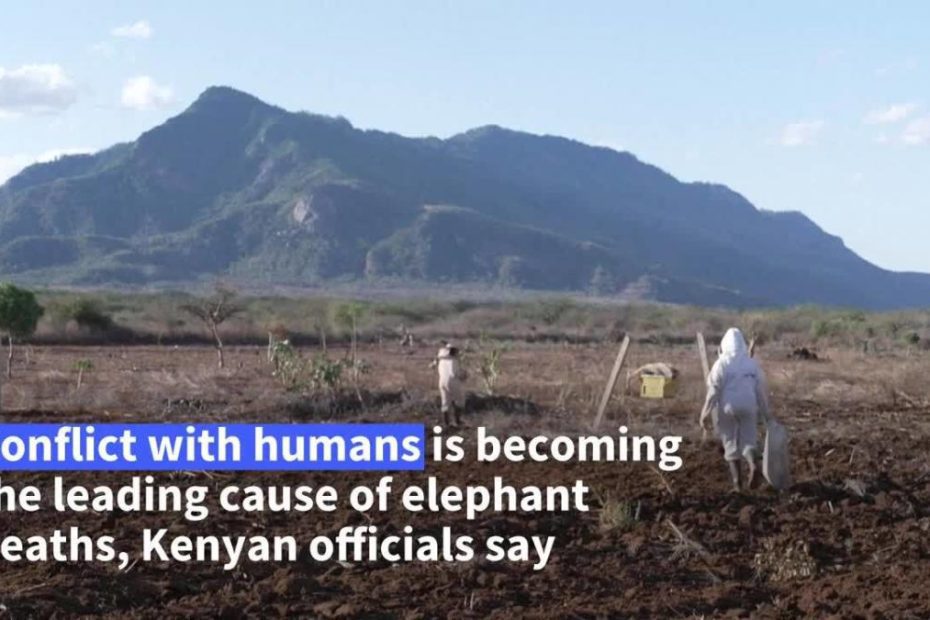“We used to hate elephants a lot,” says Kenyan farmer Charity Mwangome, as she takes a break from her work in the shade of a baobab tree.
The bees buzzing in the background are part of the reason why her hatred has subsided.
The diminutive 58-year-old said predatory elephants often destroyed months of work on her farmland, located between two parts of Kenya's world-famous Tsavo National Park.
Loved by tourists – who contribute about 10 percent of Kenya's GDP – the animals are loathed by most local farmers, who form the backbone of the country's economy.
Elephant conservation has been a resounding success, with numbers in Tsavo increasing from around 6,000 in the mid-1990s to almost 15,000 elephants in 2021, according to the Kenya Wildlife Service (KWS).
But the human population also expanded, encroaching on grazing and migration routes for the herds.
The resulting collisions become the leading cause of elephant deaths, KWS says.
Mwangome refused compensation when she lost her crop and admits she was angry with conservationists.
But a long-term project by the conservation organization Save the Elephants offered her an unlikely solution: deterring some of nature's largest animals with some of the smallest: Africanized honey bees.
Cheerful yellow beehive fences now protect several local plots, including Mwangome's.
A nine-year study published last month found that elephants avoid farms with the ferocious bees 86 percent of the time during the peak season.
“The beehive fences came to our rescue,” Mwangome said.
– Hacking nature –
The deep buzzing of 70,000 bees is enough to send many fleeing, including a six-ton elephant, but Loise Kawira calmly removes a leaf from her apiary to demonstrate the intricate wax and honey combs.
Kawira, who joined Save the Elephants in 2021 as their consultant beekeeper, trains and monitors farmers in the delicate art.
The project supports 49 farmers, whose plots are surrounded by 15 contiguous beehives.
They are all strung on lubricated wire a few meters high, which protects them from badgers and insects, but also means they tremble if disturbed by a hungry elephant.
“As soon as the elephants hear the sound of the bees and the smell, they run away,” Kawira told AFP.
“It hacks the interaction between elephants and bees,” says Ewan Brennan, local project coordinator.
It has been effective, but recent droughts, exacerbated by climate change, have created challenges.
“(In) the total heat and drought, the bees have gone into hiding,” Kawira said.
It is also expensive (about 150,000 Kenyan shillings ($1,100) to install beehives) and far beyond the means of subsistence farmers, although project organizers say it is still cheaper than electric fencing.
– 'I died' –
Moments after AFP arrived at Mwanajuma Kibula's farm, which borders one of the Tsavo parks, her beehive fence had scared off an elephant.
The five-ton animal, with skin covered in red mud, thundered into the area and then made an abrupt U-turn.
“I know my crops are protected,” Kibula said with palpable relief.
Kibula, 48, also harvests honey from her beehives twice a year, earning 450 shillings per jar – enough to pay her children's school fees.
She is lucky to be protected from the largest land mammals on earth.
“An elephant ripped off my roof, I had to hide under the bed because I knew I was going to die,” said a less fortunate neighbor, Hendrita Mwalada, 67.
For those who can't afford bees, Save the Elephants offers other solutions, such as metal sheet fences that clang when shaken by approaching elephants, and rags soaked in diesel or chili that deter them.
It's not always enough.
“I tried to plant, but every time the crops are ready, the elephants come and destroy the crops,” Mwalada told AFP.
“That has been the story of my life, a life full of too much struggle.”
ra-rbu/er/kjm

